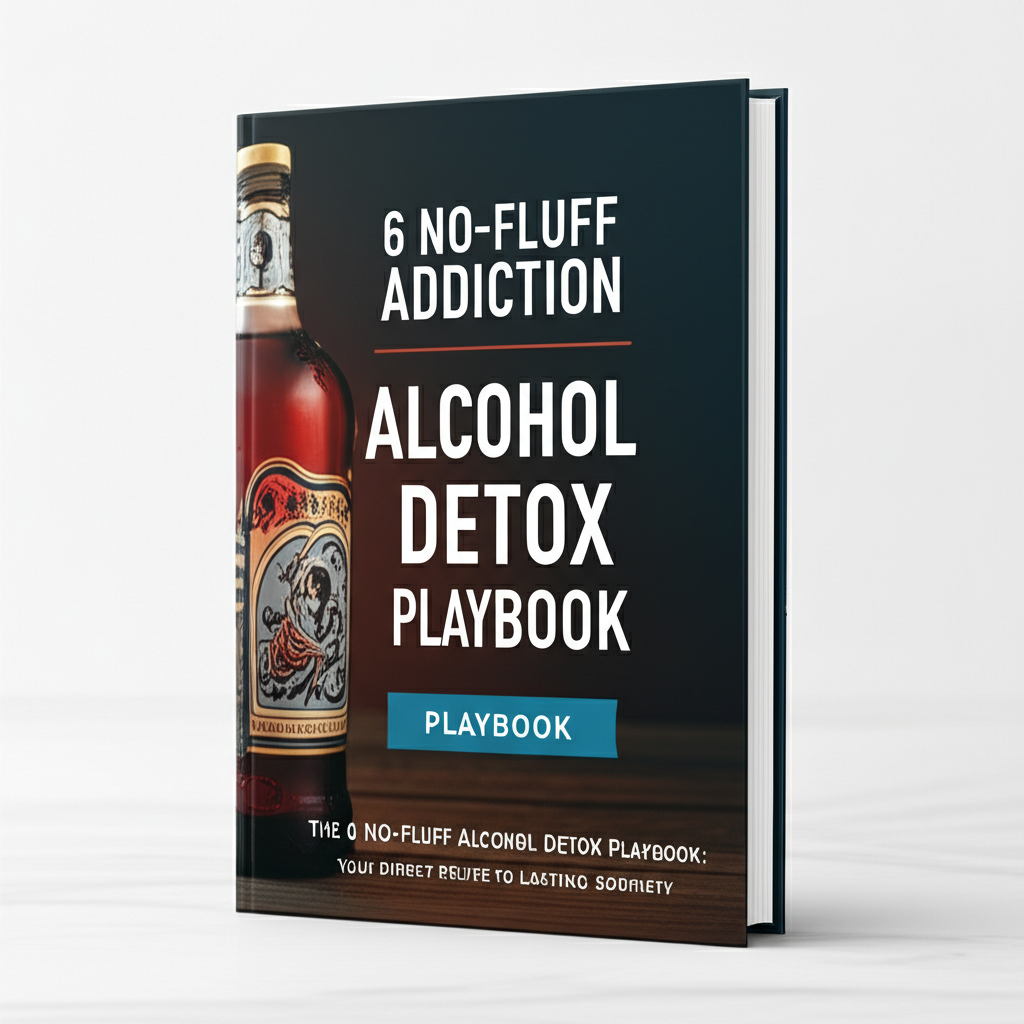The grip of alcohol addiction can feel like an unbreakable chain, tightening its hold with each passing day. For millions worldwide, the decision to break free is a monumental act of courage – a first, vital step towards reclaiming a life of health and freedom. But the path to sobriety, particularly the initial detox phase, is fraught with challenges and potential dangers if not navigated correctly. It’s a journey that demands professional guidance, not a perilous solo expedition.
Attempting to quit alcohol "cold turkey" can be more than just uncomfortable; it can be life-threatening. The body, accustomed to the constant presence of alcohol, reacts violently when it’s suddenly withdrawn, leading to a spectrum of severe and unpredictable symptoms. This is precisely why professional, medically supervised detox isn’t just recommended – it’s often essential for safety and success.
This comprehensive guide will illuminate the critical process of alcohol detox, outlining what to expect and, most importantly, presenting the 4 Pillars of Professional Alcohol Detox. These four fundamental components form the bedrock of a safe, effective, and supportive detox experience, laying the groundwork for sustainable recovery. If you or a loved one are considering this brave step, understanding these pillars is paramount.
Understanding Alcohol Addiction and the Critical Need for Detox
Before diving into the detox process itself, it’s crucial to grasp the nature of alcohol dependence. When alcohol is consumed regularly and heavily, the brain adapts to its presence, altering its chemical balance to function "normally" with alcohol in the system. Alcohol is a central nervous system depressant, slowing down brain activity. To counteract this, the brain upregulates excitatory neurotransmitters.
When alcohol is suddenly removed, these excitatory neurotransmitters go into overdrive without the depressant effect of alcohol to balance them. This leads to a state of hyperexcitability, manifesting as the uncomfortable and dangerous symptoms of alcohol withdrawal syndrome (AWS).
Why Professional Detox is Non-Negotiable:
- Physical Dependence: The body becomes physically reliant on alcohol. Quitting abruptly can trigger severe physical reactions.
- Dangerous Withdrawal Symptoms: AWS can range from mild discomfort to severe, life-threatening conditions like seizures and Delirium Tremens (DTs).
- Underlying Health Issues: Many individuals struggling with alcohol addiction have co-occurring medical or mental health conditions that complicate detox and require specialized care.
- Relapse Prevention: Professional detox programs offer immediate support and strategies to prevent early relapse, which is common and dangerous during withdrawal.
- First Step to Recovery: Detox safely clears the body of alcohol, preparing an individual for the deeper therapeutic work of addiction treatment.
The goal of detox is not to "cure" addiction but to safely and comfortably manage acute withdrawal symptoms, allowing the body to stabilize without alcohol. It’s the essential first phase, paving the way for sustained sobriety.
The 4 Pillars of Professional Alcohol Detox: Your Guide to Safe Recovery
A truly effective and safe alcohol detox program is built upon several core principles. We’ve identified these as four essential "pillars," each contributing significantly to the overall success and well-being of the individual.
Pillar 1: Comprehensive Medical Assessment and Personalized Planning
No two individuals battling alcohol addiction are exactly alike. Their physical health, mental health, history of alcohol use, and personal circumstances vary widely. Therefore, the first and most crucial step in professional detox is a thorough, individualized assessment.
What this involves:
- Detailed Medical History: A review of all pre-existing medical conditions (e.g., heart disease, diabetes, liver issues), past surgeries, and current medications. This is vital for anticipating potential complications.
- Alcohol Use History: Understanding the duration, frequency, and quantity of alcohol consumption, as well as the last time alcohol was consumed. This helps predict the severity and timeline of withdrawal symptoms.
- Physical Examination and Lab Tests: A full physical check-up, including blood tests, to assess organ function, nutritional deficiencies (common in chronic alcohol users), and identify any immediate health concerns.
- Mental Health Screening: Assessment for co-occurring mental health disorders (e.g., depression, anxiety, PTSD), which are highly prevalent alongside alcohol addiction. These conditions significantly impact detox and require integrated treatment.
- Risk Assessment: Evaluating the risk of severe withdrawal symptoms like seizures or DTs based on the individual’s history and current health status.
- Social and Environmental Factors: Understanding the individual’s living situation, support system, and any immediate safety concerns.
The Outcome: Based on this comprehensive data, a medical team – typically comprising doctors, nurses, and addiction specialists – crafts a personalized detox plan. This plan dictates the appropriate level of care (inpatient vs. outpatient), specific medications to be used, monitoring protocols, and the initial steps for emotional support. This tailored approach ensures maximum safety and comfort.
Pillar 2: Medically Supervised Withdrawal Management
This pillar is the core of the physical detox process, focusing on safely guiding the individual through the challenging period of withdrawal. It’s where the dangers of quitting "cold turkey" are mitigated by professional medical intervention.
Understanding Alcohol Withdrawal Symptoms (AWS):
AWS can begin as early as 6 hours after the last drink and peak within 24-72 hours, though some symptoms can persist for weeks. They vary in severity:
- Mild Symptoms (6-12 hours):
- Tremors (shakiness)
- Anxiety and agitation
- Nausea and vomiting
- Headache
- Sweating
- Insomnia
- Increased heart rate and blood pressure
- Moderate Symptoms (12-48 hours):
- Hallucinations (auditory, visual, tactile – seeing or hearing things that aren’t there)
- Increased severity of mild symptoms
- Disorientation
- Severe Symptoms (48-72+ hours):
- Seizures: Can occur suddenly and without warning.
- Delirium Tremens (DTs): A severe and potentially fatal form of withdrawal, characterized by profound confusion, rapid heart rate, high blood pressure, fever, profuse sweating, and severe hallucinations or delusions. DTs are a medical emergency.
The Role of Medication:
During medically supervised detox, specific medications are used to:
- Reduce the severity of withdrawal symptoms.
- Prevent dangerous complications like seizures and DTs.
- Lessen discomfort and anxiety.
The primary class of medications used are benzodiazepines (e.g., Librium, Valium, Ativan). These medications work by calming the overactive central nervous system, effectively mimicking the depressant effect of alcohol in a controlled and safe manner. They are administered in carefully tapered doses, gradually reduced over several days to allow the brain to readjust.
Other Supportive Medications and Care:
- Anti-nausea medications: To alleviate stomach upset.
- Sleep aids: To help with insomnia.
- Vitamin supplements: Especially Thiamine (Vitamin B1), which is often severely depleted in chronic alcohol users and crucial for preventing neurological complications like Wernicke-Korsakoff Syndrome.
- Constant Monitoring: Healthcare professionals provide 24/7 observation, regularly checking vital signs, assessing symptom severity, and adjusting medication as needed. This constant oversight ensures immediate response to any emerging complications.
Pillar 3: Holistic Support and Nutritional Restoration
Detox is not just about managing physical symptoms; it’s also about stabilizing the mind and body as a whole. Alcohol addiction takes a massive toll on an individual’s physical and mental health, often leading to severe nutritional deficiencies and emotional distress. This pillar addresses these crucial aspects.
Psychological and Emotional Support:
- Therapeutic Environment: Creating a safe, calm, and supportive atmosphere where individuals feel heard and understood.
- Counseling and Guidance: While intensive therapy typically begins after detox, initial counseling sessions or supportive conversations help individuals process the immediate challenges, address fears, and prepare for the next stages of recovery.
- Peer Support: Interacting with others going through a similar experience can foster a sense of community and reduce feelings of isolation.
- Stress Reduction Techniques: Introducing gentle activities like guided meditation, deep breathing exercises, or light stretching (if medically cleared) to help manage anxiety.
Nutritional Restoration:
Chronic alcohol consumption wreaks havoc on the body’s ability to absorb and utilize nutrients. Malnutrition is common and can exacerbate withdrawal symptoms and delay recovery.
- Balanced Meals: Providing regular, nutritious meals rich in vitamins, minerals, and lean protein to help the body heal and regain strength.
- Hydration: Ensuring adequate fluid intake is critical for detoxification and overall well-being.
- Targeted Supplements: Beyond Thiamine, other supplements like B-complex vitamins, Vitamin C, magnesium, and zinc may be administered to correct specific deficiencies.
- Education: Teaching individuals about healthy eating habits and the importance of nutrition in long-term sobriety.
This holistic approach recognizes that true recovery involves healing the entire person – body, mind, and spirit – not just eliminating a substance.
Pillar 4: Crucial Aftercare Planning and Continuum of Care
Perhaps the most overlooked, yet absolutely vital, pillar is the strategic planning for life after detox. Detox is merely the first step on a long journey; it clears the body of alcohol but does not address the underlying psychological, emotional, and behavioral roots of addiction. Without robust aftercare, the risk of relapse is extremely high.
Components of a Comprehensive Aftercare Plan:
- Transition to Further Treatment:
- Inpatient Rehabilitation (Residential Treatment): For those requiring a highly structured, immersive environment away from triggers. This often follows detox immediately.
- Outpatient Programs (IOP/PHP): Intensive Outpatient Programs or Partial Hospitalization Programs for individuals who need significant support but can live at home or in sober living.
- Therapy and Counseling:
- Individual Therapy: One-on-one sessions with a therapist to explore triggers, develop coping mechanisms, address trauma, and work through underlying issues.
- Group Therapy: Provides peer support, shared experiences, and helps develop social skills in a sober context.
- Family Therapy: Involving loved ones to heal relationships and establish healthy communication patterns.
- Specific Modalities: Cognitive Behavioral Therapy (CBT), Dialectical Behavior Therapy (DBT), Motivational Interviewing, and trauma-informed therapies are common.
- Support Groups:
- 12-Step Programs: Alcoholics Anonymous (AA) is widely recognized and offers a spiritual framework for recovery.
- Non-12-Step Alternatives: SMART Recovery, Refuge Recovery, and LifeRing Secular Recovery provide different approaches based on self-empowerment and evidence-based strategies.
- Sober Living Environments: Transitional housing options that provide a structured, substance-free environment and peer support for individuals transitioning from inpatient care back into daily life.
- Relapse Prevention Strategies: Developing a personalized plan to identify high-risk situations, cope with cravings, and manage stress without resorting to alcohol. This includes building a strong support network.
- Life Skills Training: Addressing practical aspects like financial management, job searching, healthy relationships, and stress management, which are often neglected during active addiction.
- Ongoing Medical and Psychiatric Care: Continuing to manage any co-occurring physical or mental health conditions.
The aftercare plan is developed collaboratively between the individual, their detox team, and often, their family. It ensures a seamless continuum of care, recognizing that recovery is an ongoing process, not a destination.
Choosing the Right Professional Detox Program
Selecting the ideal detox program is a critical decision. Here are key factors to consider:
- Accreditation and Licensing: Ensure the facility is licensed by the state and accredited by reputable organizations (e.g., The Joint Commission, CARF).
- Medical Staff Qualifications: Verify that the medical team (doctors, nurses) are experienced in addiction medicine and withdrawal management.
- Treatment Philosophy: Does the program align with your values and needs? Do they offer holistic care in addition to medical supervision?
- Inpatient vs. Outpatient: For alcohol detox, inpatient is generally recommended due to the risks involved, but outpatient options may be suitable for very mild cases with strong home support.
- Environment and Amenities: A comfortable, safe, and clean environment can significantly aid the detox process.
- Cost and Insurance Coverage: Understand the financial aspects and confirm your insurance benefits.
- Aftercare Planning: A good detox program will have a robust focus on transitioning you to the next phase of treatment.
- Location: Proximity to family or a supportive network might be a factor, but sometimes traveling for treatment is beneficial to remove oneself from triggers.
Dispelling Common Myths About Alcohol Detox
Let’s address some prevalent misconceptions that can hinder individuals from seeking help:
- "I can just tough it out at home." While some might, for anyone with moderate to severe dependence, this is extremely dangerous due to the risk of seizures, DTs, and other severe complications. Medical supervision is key.
- "Detox is all I need to get sober." Detox is the crucial first step to clear the body, but it doesn’t address the psychological and behavioral aspects of addiction. Without further treatment, relapse is highly probable.
- "Detox is always agonizing and terrifying." While uncomfortable, professional detox aims to make the process as safe and manageable as possible with appropriate medication and supportive care.
- "Only ‘weak’ people need professional detox." Addiction is a complex disease, not a moral failing. Seeking professional help is a sign of strength and self-awareness, acknowledging the need for expert medical care.
Conclusion: Your Path to a Sober Future Begins Here
The decision to seek help for alcohol addiction is a profound act of self-care and courage. Navigating the detox process safely and effectively is the critical first step on the path to lasting recovery. By understanding and embracing the 4 Pillars of Professional Alcohol Detox – comprehensive medical assessment, medically supervised withdrawal management, holistic support and nutritional restoration, and crucial aftercare planning – you equip yourself with the knowledge to make informed decisions and set a strong foundation for a sober future.
Remember, you don’t have to face this challenge alone. Professional detox centers offer a beacon of hope and a pathway to safely break free from the chains of alcohol. Reaching out for professional help is not just about quitting drinking; it’s about reclaiming your health, your well-being, and your life. The journey may be challenging, but with the right professional guidance, a life of sobriety and fulfillment is not just possible – it’s within your reach.








